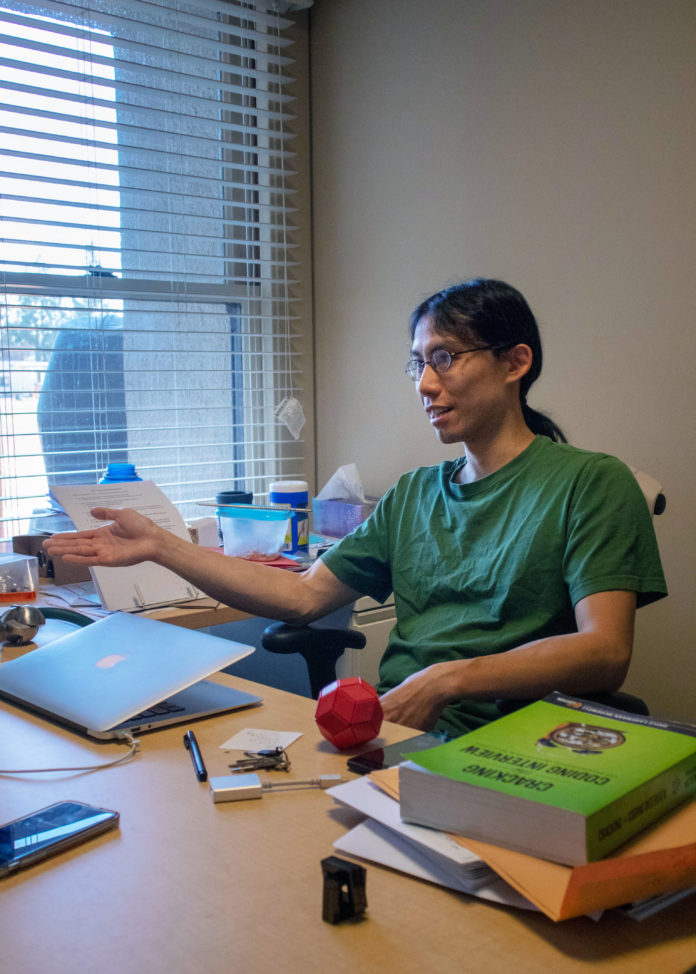
This September, the National Science Fund (NSF) awarded Occidental a $494,000 grant to fund the installation of a computer cluster which will benefit research and classes for both professors and students, according to economics professor Diana Ngo, one of the professors who worked on securing the grant.
According to chemistry professor Jeffrey Cannon, a computer cluster is a group of computers that work together to compute complicated problems faster than a normal computer. Cannon said this cluster is designed specifically for solving computational numerical tasks — where scholars input algorithms into computers, which can use approximations to solve mathematic conundrums. Cannon said the cluster will benefit all fields of study at Occidental.
“There’s lots of different ways that computation impacts chemistry,” Cannon said. “Specifically, as a synthetic chemist, I’m always interested in the structure of molecules and how they interact in the molecular way. So we can use computational methods to simulate what molecules look like and how they behave.”
According to cognitive science and computer science professor Justin Li, the application for the grant was a combined effort from professors in multiple departments.
“What we did was write a grant to the NSF, trying to convince them that we needed some computational resources on campus to support programs in the sciences and beyond,” Cannon said. “So the grant is for almost a half a million dollars to buy a high performance computing cluster to support faculty research, student research, and academic programs at Oxy.”
Jim Tranquada, director of communications and community relations, said he was excited that students in a variety of departments will have access to this new technology.
“From my perspective, the great thing about this is that there are several things about this grant that benefits not only research, but classroom teaching as well,” Tranquada said. “There is a remarkable range of disciplines in the physical sciences, in the life sciences and social sciences, all of which you’re going to benefit from.”
Ngo said she was excited for the computer cluster’s ability to compute data for research and advance classroom tasks within the economics department.
“The goal here was to help promote really high-quality research and teaching across the college,” Ngo said. “Specifically, thinking about getting something that can really help us answer questions that require a lot of big data and a lot of computing time.”
Other professors, such as physics professor Janet Scheel, echoed Ngo’s sentiments, saying that these computer clusters are essential for their research. Scheel said before this grant, she had to do her research at other labs, but with these new computers, she can do it at Occidental.
“I actually had no computer here that I could do research on at that scale,” Scheel said. “It’s the difference between doing research and not being able to do research here. So we plan on using it in courses in one way, and in particular, in the computer science department.”
Tranquada said that in order to use the computer cluster, there has to be a special adapted room to house the equipment. According to Cannon, this grant also comes with money to hire an administrator, who will make sure the computer does not overheat and break.
“There are some facilities that have to be updated in Arthur G. Coons,” Cannon said. “We hope that all of that all those updates to the facilities can be done by the end of the semester, and then we can purchase the computer and have it installed.”
Li said it is important for Occidental to have these new computers because demand for computer science classes and research has increased.
“Since computer science has grown a lot in the last couple years, we have found more faculty need this kind of computational power,” Li said. “Along with more students actually wanting to learn about computer science.”
Ngo said the grant will advance data computation for research and teaching. Li says that he hopes this grant will encourage students to learn about computer science.
“This is something for the entire Oxy community,” Li said. “So I see this as part of a step in getting more people around different parts of Oxy to get computer science training that they need, even if they’re not taking computer science courses.”
![]()






























